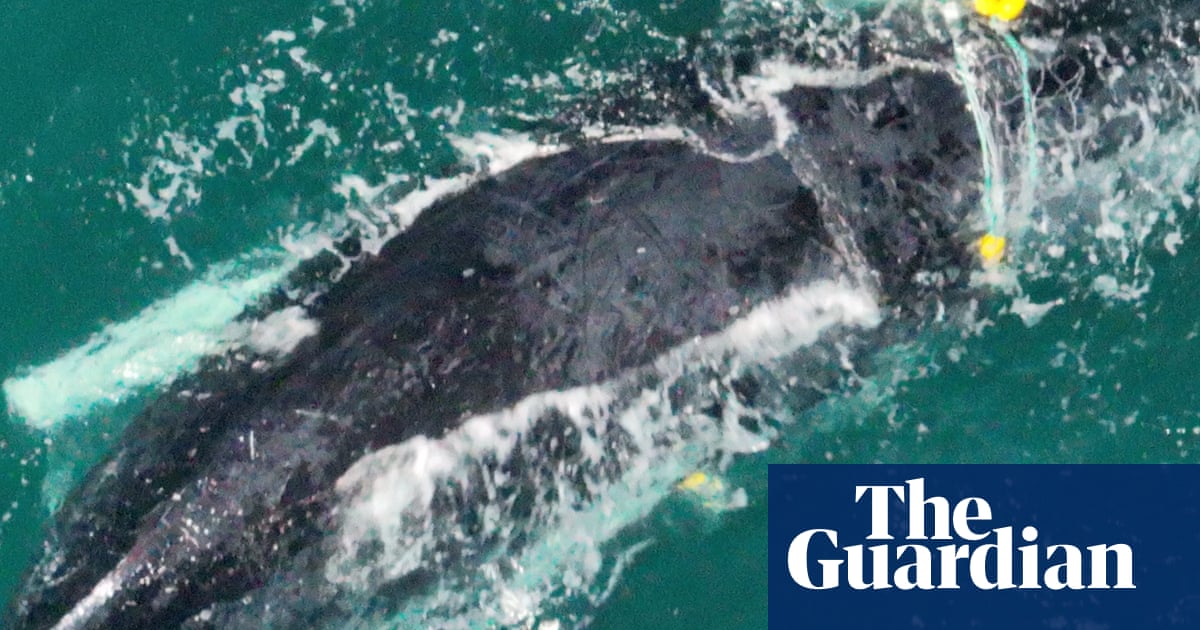Queensland’s premier said the state is “not for turning” on its plan to expand shark netting, and won’t put protecting whales “at the expense of one single human”.
A mother and baby humpback were discovered trapped in shark netting near Rainbow Beach on Saturday, the eighth and ninth whales to become entangled in nine days.
Queensland’s premier, David Crisafulli, announced an expansion of the program in May.
A KPMG report on the state’s shark control program had recommended the state government trial removing shark nets during whale migration season from April to October, as is done in New South Wales.
But on Sunday Crisafulli said he was “not for turning” on the plan, and that the government had already announced its response to the KPMG report.
He said the state government would do “all we can to protect environmental lives as well”.
Sign up: AU Breaking News email
“We will do everything we can to be good environmental stewards, but it’s not going to come at the expense of one single human. We just won’t, and I’m not for turning on that,” Crisafulli said.
Premier David Crisafulli said ‘the life of one child on one beach anywhere in this state, is worth everything to me’ Photograph: Russell Freeman/AAP
Queensland is one of three jurisdictions in the world to use shark nets. The state also employs drum lines, which bait sharks on to a baited hook.
The NSW government recently paused a rollback of its shark net program after a fatal shark attack in Sydney.
Crisafulli said the state would be rolling out more protection for swimmers “and we’ll do it as environmentally sensibly as we can but, but the life of one child on one beach anywhere in this state, is worth everything to me”.
According to Humane World for Animals, about five in six animals trapped in Queensland’s shark nets are not target shark species.
There have been 131 whales, 298 turtles and 327 dolphins trapped in them since 2001.
skip past newsletter promotion
Sign up to Breaking News Australia
Get the most important news as it breaks
Privacy Notice: Newsletters may contain information about charities, online ads, and content funded by outside parties. If you do not have an account, we will create a guest account for you on theguardian.com to send you this newsletter. You can complete full registration at any time. For more information about how we use your data see our Privacy Policy. We use Google reCaptcha to protect our website and the Google Privacy Policy and Terms of Service apply.
after newsletter promotion
There have been 11 whale entanglements this year associated with the shark control program, according to the conservation group, compared with eight whales last year, and 11 in 2023.
A spokesperson for the department of primary industries said the latest entangled whales had been released.
The department of primary industries deputy director-general of fisheries, Pauline Jacob, said “interference from two scuba divers unfortunately made the entanglement worse,” complicating attempts to release the whales.
Humane World for Animals marine biologist Lawrence Chlebeck said the entanglement could have done serious long-term damage to the two whales, on their long journey to Antarctica.
He said there was no basis for the argument that shark nets protect swimmers.

